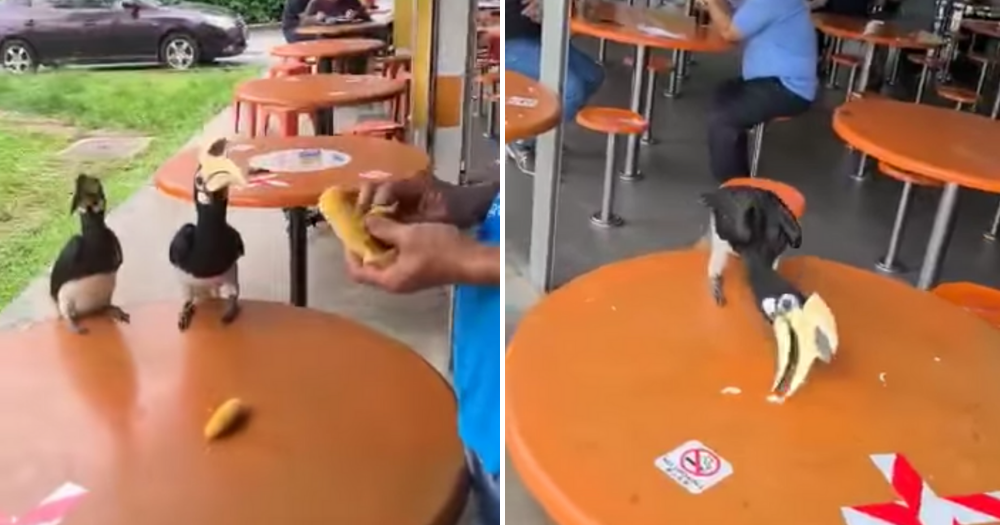You might have come across a video of two hornbills eating leftover food scraps off a coffee shop table at Loyang Industrial Park.
The video, which was circulated on social media, also showed the birds being fed a banana by a man.
While the act of feeding the hornbills might have looked like a sympathetic and heartwarming one, feeding wildlife is detrimental to the animals in various ways.
Nature lovers online decried the action and the feeder as well.
NParks takes "serious view" on wildlife feeding
In response to the incident, the National Parks Board (NParks) has issued a statement to say that they are investigating the incident.
Under the Wildlife Act, first-time offenders caught feeding wildlife can be fined up to S$5,000, and repeat offenders can be fined up to S$10,000.
NParks' director of wildlife management How Choon Beng said that the agency takes "a serious view" of the feeding of wild animals.
How explained that one of the main reasons for wildlife approaching humans is due to the feeding.
Feeding alters the natural behaviour of wildlife, and causes them to become accustomed to human presence, as well as rely on humans as a quick and easy source of food.
This could result in greater instances of human-wildlife conflict, such as road traffic accidents, he said.
"Wildlife may have an increased propensity to approach humans when they associate humans as food providers. This may lead to them venturing into urban areas in search of human sources of food, wandering onto roads posing a potential danger to motorists and to themselves and displaying aggressive behaviour towards people they may come across."
This reasoning was previously echoed by National University of Singapore biologist N Sivasothi, who gave his take on why wild boars were stealing people's food following an up-close and personal incident a female cyclist experienced at Pulau Ubin.
How added that the wildlife population is naturally regulated by the resources available in the environment.
"Feeding causes an artificial increase in food which may result in an unnatural and unsustainable increase in populations."
It also disrupts the delicate ecological balance of the environment.
Feeding wildlife with processed foods can also cause health problems to the animals. As they become reliant on food given out by humans, they may even lose their natural foraging skills and struggle to survive on their own.
Totally unrelated but follow and listen to our podcast here
Top photo from Joseph Choo / FB
If you like what you read, follow us on Facebook, Instagram, Twitter and Telegram to get the latest updates.
